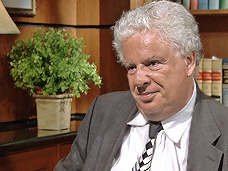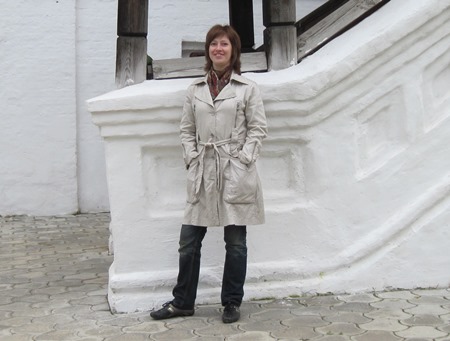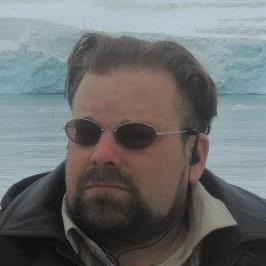
 This Expert Panel recently addressed the
damning report on the state of human rights in Russia by Washington-based
Freedom House titled "Contending with Putin’s Russia: A Call for American
Leadership”. The report argues that the return of Vladimir Putin to the Russian
presidency has triggered a wave of political repression that is worse than any
such crackdown since the Soviet era. It also suggests that Russia is
obstructing the US’s policies in Syria and elsewhere, while intentionally
fuelling anti-American sentiment among the Russia public.
This Expert Panel recently addressed the
damning report on the state of human rights in Russia by Washington-based
Freedom House titled "Contending with Putin’s Russia: A Call for American
Leadership”. The report argues that the return of Vladimir Putin to the Russian
presidency has triggered a wave of political repression that is worse than any
such crackdown since the Soviet era. It also suggests that Russia is
obstructing the US’s policies in Syria and elsewhere, while intentionally
fuelling anti-American sentiment among the Russia public.
Based on this report, Freedom House is urging the White House to adopt a more aggressive stance in US policy toward Russia. Specifically, it wants US cooperation with the Kremlin to be made conditional on improvement in the state of democracy and human rights. For example, the NGO proposes that Washington should withhold US support for Russia’s entry into the OECD.
So far there has been no evidence that the US administration is acting on Freedom House’s recommendations. On the contrary, John Kerry’s first steps as new Secretary of State suggest that Obama will shift toward greater pragmatism in relations with Russia – witness, in particular, his constructive approach toward Moscow in the handling of Syria’s civil war – and indeed in foreign affairs in general. Such a shift would be welcomed by the US’s partners around the world.
Freedom House, however, seems determined to make its anti-Russia message even louder. It plans to hold a forum in early March on "US-EU-Russia Relations After Putin’s Crackdown”. Speakers at the event will include members of Russia’s extra-parliamentary (or as they are called in Russia, "non-systemic”) opposition along with mid-ranking US and European politicians. Also present will be Lilia Shevtsova, an analyst at Carnegie Moscow Center. Ms Shevtsova has recently sounded an even more alarmist note than that of Freedom House, suggesting that the regime may deploy ever-harsher repressive measures against the opposition, such as denying exit visas and staging political trials. She also asked rhetorically whether a regime harassing its citizens "will hold back from a confrontational stance to the outside world?”
Amid the continued turmoil in the Middle East and North Africa, rising tensions in the Far East and the ongoing global economic crisis, the last thing that is needed right now is a Cold War-like confrontation with Russia. Surely, the responsible way forward is the pragmatism demonstrated so far by President Obama and John Kerry? The Kremlin may well have over-reacted in its response to last year’s street demonstrations in Moscow, but is that really reason enough for the US to opt for outright confrontation, instead of cooperation, with a key Eurasian power such as Russia – especially against the background of the rapidly deteriorating international environment?
Moreover, it must be reiterated here that Freedom House’s stance is based on the intellectually flawed assumption of continuity between the Soviet and Putin regimes. That stance ignores the fact that a qualitative turning point was reached with the collapse of Soviet Union in 1991. In the decade that followed, Russia underwent a sweeping transformation and under Putin has emerged as an increasingly prosperous and stable country, albeit one with a still immature democracy. To make foreign policy recommendations that ignore this reality is not only dishonest; it is perhaps downright dangerous.
Questions:
- To what extent is Freedom House’s continued alarmist stance over Russia justified?
- To what extent is it likely to succeed in influencing US policymakers and/or the international media?
- Is not the fact that members of Russia’s extra-parliamentary opposition are able to participate in Freedom House’s activities in itself evidence against the NGO’s alarming conclusions?

Editor, Expert Discussion Panel
Professor, New York University, Prague
Editor, Consensus East-West Europe
Expert Panel Contributions
 ‘Less than Meets the
Eye’: Martin Sieff, Chief
Analyst at the Globalist, reports directly from the Freedom House
conference
‘Less than Meets the
Eye’: Martin Sieff, Chief
Analyst at the Globalist, reports directly from the Freedom House
conference
The Freedom House conference devoted to the Russian government’s record on human rights and democracy took place in Washington, DC on March 4. And at first glance it was an impressive event. But in terms of political realities in the United States, it was all icing and no cake.
The conference was held in a major meeting hall of the Dirksen Senate Building on Capitol Hill. The speakers included a United States Senator (Ben Cardin from Delaware) and Congressman (James McGovern from Massachusetts), both from President Barack Obama’s own Democratic Party. (McGovern is of interest in that unlike most other Russia critics he is not a general foreign policy hawk, and opposed the 2003 Iraq War.)
The meeting was packed solid with at least 230 people and lots of television cameras.
Its co-sponsors were the Foreign Policy Initiative, which is run by Republican neo-conservatives and the Institute of Modern Russia, which is headed by Pavel Khodorkovsky, the son of Russia’s most famous prisoner. And there were plenty of famous Russians at odds with their government who spoke there, including former Prime Minister Mikhail Kasyanov and Duma member Dmitri Gudkov: the rare whiffs of reality in the proceedings came mainly from these politicians.
Representatives of Washington’s enormous professional human rights and democracy-building establishment, as huge and ponderous as the Titanic, were out to support the gathering in full force.
The timing of the conference was also highly significant. It was bound to have been perceived in Moscow as at least quasi-official in nature. At a time when new Secretary of State John Kerry is working hard with his opposite number, Russian Foreign Minister Sergei Lavrov, to try to reverse the serious deterioration in US-Russian relations over the past year, the timing could not have been worse.
And that of course, was the purpose of holding the event at such a time.
However, the conference organizers could produce no one from the Obama administration. No doubt there were a couple of low-level State Department staffers in the audience to keep an eye on things and report back. But there wasn't a hint of any official encouragement. The organizers could not get even a lowly deputy assistant secretary of state to appear on the panel.
Of course, Secretary of State Kerry is sincere and serious in his efforts to undo the damage of his predecessor Hillary Clinton's tone-deaf, uncompromising, and rigid policy towards Russia over the past four years. The truth behind Secretary Clinton’s famous "reset” policy of course is not that it failed but that it was never really tried.
Conspiracy-mongers would love to think that President Obama and Secretary of State Kerry might be in private agreement with the conference and quietly encouraging it from behind closed doors. But nothing could be further from the truth. One speaker after another criticized the president for allegedly being too passive and not interfering in the internal affairs of another country.
Revealingly, the loudest applause of the proceeding was when Lilia Shevtsova of the Carnegie Endowment for International Peace, sneered at President Obama for "leading from behind."
This conference was no stalking horse for the US government. On the contrary, it was run by Republican neo-conservatives and their ideological equivalents among the Democrats, led by Sen. Cardin, a prime sponsor of the notorious Magnitsky Bill, which even Secretary Clinton tried in vain to prevent being passed into law because of its inflammatory effect on US-Russian relations.
Yet in terms of the underlying American politics, the conference was a Jurassic Park, a throwback to attitudes evident during the last serious spike in US-Soviet tensions of the Cold War era (that is, in the early 1980s). It expressed real concerns about democracy and human rights in Russia among the Washington political class but it could call on no support at all from the Obama administration. Republicans in Washington are now reduced to only one hold on power – their majority in the House of Representatives, even though they polled 1.5 million votes less than the Democrats in the November congressional elections (a wonderful case of democracy in action). And they have only a passing interest in Russia as a stick with which to try to beat the president.
The other revealing surprise about the conference was that it enjoyed far more political clout from Europe than from the United States. In addition to McMillan-Scott, former Estonian Foreign Minister Kristina Ojuland, now a member of the European Parliament was a panelist, so was Guy Verhofstadt, leader of ALDE Group in the European Parliament and a former prime minister of Belgium. There was no American panelist of comparable background.
The driving force to turn the screws on Russia did not come from any major American political figures in either the Republican or the Democratic parties. It came from the European participants. And even they constantly complained about their inability to get the major national governments in Berlin, Paris and London to do their bidding. Chancellor Angela Merkel, President Francois Hollande and Prime Minister David Cameron recognize the importance and necessity of maintaining good relations with Russia.
How then to sum up the significance of the March 4 conference? Less than meets the eye.
Edward Lozansky
President American University in Moscow
Professor of World Politics, Moscow State University
Should US taxpayers fund activities that are detrimental to US security interests?
In any event, Congress should be aware that its meddling in Russia’s internal affairs will hardly help to improve its dismal approval rating, which is in the single digits these days. Moreover, its disapproval rate is over 80%, which is a clear indicator that the American people want their elected representatives to concentrate on domestic issues and worry about their essential needs. Members of Congress would be also well advised to always remember the message by President Thomas Jefferson: "We wish not to meddle with the internal affairs of any country.”
 Ekaterina
Blinova
Ekaterina
Blinova
Freedom House is a world-wide organization: the sphere of its work includes Americas, Africa, Europe, Eurasia and Pacific Asia. Let us review briefly its history.
Freedom House was founded in 1941 during WWII, and after the war it took up the struggle against the "other twentieth-century totalitarian threat, Communism”. Freedom House strongly endorsed the post-war Atlantic Alliance, as well as such key policies and institutions as the Marshall Plan and NATO.
During the Cold War this organization played an important role in the containment and eventual collapse of the USSR. Freedom House has established an increasingly global presence since the American National tragedy of 9/11 (2001) through its offices in some of the most difficult regions: it proclaimed the "war on terrorism” all over the world. This organization is financed by the US government. Federal funding represented around 80% of Freedom House's budget either through the State Department, USAID, or the National Endowment for Democracy (NED). According to the Freedom House website, the organization has a $19 million annual budget.
To answer the question to what extent is Freedom House’s continued alarmist stance over Russia justified, we have to answer another question: Who benefits from Freedom House’s activities?
During a March 2006 speech at Freedom House, then US President George W. Bush emphasized the Freedom House group's work, saying: " In this new century, the advance of freedom is a vital element of our strategy to protect the American people, and to secure the peace for generations to come. We're fighting the terrorists across the world because we know that if America were not fighting this enemy in other lands, we'd be facing them here in our own land."
President Thomas Jefferson’s dictum of not meddling in the internal affairs of any country has been replaced by the new "ideology”. This new ideology allows interference in other countries’ affairs, but such "intervention” needs justification. Freedom House provides the government with it: the organization is making a thorough analysis of the various aspects of "freedom” in countries throughout the world. If a country does not satisfy the requirements of "freedom” and "democracy” as measured by Freedom House, the organization will make efforts to support "democratic changes”.
Some experts accuse Freedom House of indulging in a "biased approach”. Noam Chomsky and Edward S. Herman wrote that this organization was criticizing states opposed to US interests while being unduly sympathetic to regimes supportive of US interests (Chomsky and Herman: Manufacturing Consent, Vintage 1994). In a similar vein, Justin Raimondo, an American writer, asserted that "Freedom House standards are elastic, bending to the dictates of American foreign policy”.
We can’t say that Freedom House is working "against” Russia on its own initiative, I suppose: the NGO is supported mostly by lobbies which determine the direction of the US foreign policy. Since under Putin Russia has been pursuing a more independent line vis-à-vis the US, the so-called "Rusophobic” lobby, dissatisfied with the loss of influence and opportunities in Russia, has become more vocal, not least through organizations such as Freedom House. This lobby has its own vital interests in Eurasia. It is doubtful whether they are going to change their stance in the immediate future.
Freedom House has been described in contradictory ways. Some, like the Washington Post’s Jennifer Rubin, call it an "independent and widely respected human rights monitoring organization”[1], while others, like the current US Ambassador to Russia, Michael McFaul, once referred to it as one of the "American agents of influence” that has meddled in the internal affairs of other nations, in particular in Ukraine.[2] If it is the latter, then surely it cannot also be the former.
But beyond the matter of Freedom House’s objectivity, there is also the matter of its accuracy. Its rating of democracy, especially in the media, have been questioned by both scholars and media experts.[3] They seem surprisingly out of date, seemingly unaware that 95% of the Russian media is in private hands, or that opposition channels like Dozhd are now available throughout all of European Russian on cable and attract some of the country’s top political figures.[4]
Freedom House remains blissfully ignorant of the Russian internet, which has more users than any other national domain in Europe, 99.7% of whom are active in social networks, making Russia the most socially engaged internet audience in the world. It used to be said that Russians had few news options because they got 80% of their news from state-controlled television. What that figure fails to mention is that only 2% rely on just one source for their news. These days, the universally available alternative is the internet which, for persons under 34, is more popular than television. [5]
Even Putin’s redoubtable critic, Masha Lipman, says that Freedom House’s labeling of Russia as not free "may be misleading.” "It would be wrong,” she writes, "to regard Russia as a hard authoritarian regime that, much like the USSR, persecutes its citizens for disseminating unwelcome information.”[6]
Critics note at least three major problems with Freedom House’s assessments of Russia. One is that its ratings make sweeping generalizations without reference to systematic, nationwide annual data on public activism and NGO activity. A second – persistent negativism – is the direct result of political choices made in the 1990s, when Russian democracy was rated over-generously. Since Freedom House cannot revise earlier estimations downward, it has little choice but to push Russia’s rankings ever lower.[7]
Finally, there is the gaping disparity between the trends that Freedom House reports and what Russian’s themselves report. Just 20% say freedom of speech is restricted, compared with 45% who disagree; 75% say that, all in all, the results of the March 2012 presidential election should be trusted; and the number of those who say that Russia is either wholly or partially a democracy has actually increased from 37% in 2006 to 44% in 2012, while those who see less democracy has remained the same.[8]
In sum, it behoves analysts to treat such rankings with skepticism. While they are not entirely without value, they are no substitute for a systematic and careful assessment of Russian democracy, which is much more complex than Freedom House is willing to acknowledge.
NOTES:
[1] Jennifer Rubin, "Time to increase pressure on Putin." Washington Post (December 13, 2011).
[2] Michael McFaul, "'Meddling' in Ukraine: Democracy Is Not an American Plot." Washington Post (December 21, 2004).
[3] Fred Weir, "Russian media: True, we're 'not free' - but we're not Zimbabwe." Christian Science Monitor (May 2, 2012); Paul Gottfried, "Freedom House’s Illiberal Democracies," The American Conservative(February 21, 2011); Debra Javeline and Sarah Lindemann-Komarova. "How We Assess Civil Society Developments: The Russia Example." PONARS Eurasia Policy Memo No. 34 (August 2008); Stephen Boykewich, "Devilish Forces." The Virginia Quarterly (Winter 2009).
[4] Polina Bykhovskaya, "'I am the pro-Kremlin propaganda'." Opendemocracy.net (December 14, 2011); "Conversation at Dozhd (Rain) Television Channel Studio." Kremlin.ru (April 25, 2011); "Russian TV Expert Lysenko on Censorship," Kommersant (November 22, 2011).
[5] Evgeniya Chaykovskaya,"Russia’s Internet use surges." Moscow News (April 18, 2012); Anton Blagoveshchensky, "Vklad Runeta v rossiiskuyu ekonomiku otsenili v 1,7 protsenta,” Rossiiskaya gazeta (May 15, 2012).
[6] Maria Lipman, "Rethinking Russia: Freedom of Expression without Freedom of the Press." Journal of International Affairs (Spring/Summer 2010).
[7] Debra Javeline and Sarah Lindemann-Komarova, "Rethinking Russia : A Balanced Assessment of Russian Civil Society," Journal of International Affairs (Spring/Summer 2010).
[8] "Russian radio discusses Moscow's response to Freedom House report." BBC Monitoring (May 8, 2007); "Russians Are Sure Russia Will Develop But Follow Its Own Way - Poll." Interfax (February 19, 2012). Source; https://www.levada.ru/17-02-2012/rossiyane-ob-ustroistve-strany-i-demokratii.;"Most Russians Believe In Fair Presidential Vote - Poll." Interfax (March 1, 2012).
Anatoly Karlin
Da Russophile
In this latest Panel, Vlad Sobell asks us supposed Russia "experts” whether Freedom House’s "alarmist stance” toward Russia is justified. Well, what do YOU think? I don’t think you need to be an expert to answer this; it’s an elementary issue of common sense and face validity. Consider the following: Freedom House gives Russia a 5.5/7 on its "freedom” score, in which 7 is totalitarianism (e.g. North Korea) and 1 is complete freedom (e.g. the post-NDAA US).
As we learn from Freedom House, this makes Putin’s Russia about as "unfree” as the following polities:
- The United Arab Emirates, a "federation of seven absolute dynastic monarchs whose appointees make all legislative and executive decisions”… where there are "no political parties” and court rulings are "subject to review by the political leadership” (quoting Daniel Treisman and Freedom House itself);
- Bahrain, which recently shot up a ton of Shia demonstrators, and indefinitely arrested doctors for having the temerity to follow the Hippocratic oath and treat wounded protesters;
- Any of the 1980’s "death-squad democracies” of Central America, in which tens of thousands of Communist sympathizers or just democracy supporters were forcibly disappeared;
- The Argentinian junta, which "disappeared” tens of thousands of undesirables, some of whom were dropped from planes over the Atlantic Ocean;
- Yemen, which lives under a strict interpretation of sharia law and where the sole candidate to the Presidency was elected with 100% of the vote in 2012 (which Hillary Clinton described as "another important step forward in their democratic transition process”).
- Putin’s Russia is also, we are to believe, a lot more repressive than these polities:
- South Korea in the 1980’s, a military dictatorship which carried out a massacre in Gwangju on the same scale as that of Tiananmen Square, for which China would be endlessly condemned;
- Turkey, which bans YouTube from time to time, and today carries the dubious distinction of hosting more imprisoned journalists – 49 of them, according to the CPJ – than any other country, including Syria, Iran, and China. (Russia imprisons none);
- Mexico under the PRI, which falsified elections throughout the years of its dominance to at least the same extent as United Russia;
- Singapore, whose parliament makes the Duma look like a vibrant multiparty democracy and uses libel law to sue political opponents into bankruptcy. (In the meantime, Nemtsov is free to continue writing his screeds about Putin’s yachts and Swiss bank accounts);
- Kuwait, where women got the vote only in 2005.
I’d say it’s pretty obvious that Freedom House has a definite bias, which looks something like this: +1 points for being friendly with the West, -1 if not, and -2 if you also happen to have oil, and are thus in special urgent need of a color revolution. Then again, some call me a Kremlin troll, so you might be wiser to trust an organization that was until recently chaired by a former director of the CIA, an avowed neocon given to ranting about Russia’s backsliding into "fascism” among other things. If that’s the case you’re probably also the type who believes Iraq was 45 minutes away from launching WMDs and that Islamist terrorists "hate us for our freedom.”
P.S. If you want a reasonably accurate and well-researched political freedoms rating, check out the Polity IV series. Unfortunately, while it’s a thousand times better than Freedom House, it’s also about a thousand times less well known.
 Mark Sleboda
Mark Sleboda
Far more credible and objective academic and fair-minded assessments of political systems exist such as Polity IV and the Karlin Freedom Index – but these are ignored by the Western MSM because they don’t meet their sensationalist, propaganda, and narrative purposes. Freedom House’s jingoistic blathering and demonizing shouldn’t have any real effect on US policymakers – as their propaganda mouthpiece, it already reflects their own opinions – unless they are starting to believe their own propaganda, that is…
Sergei Roy
Former Editor-in-Chief, Moscow News



_jpg/250px-ElbeDay1945_(NARA_ww2-121).jpg)





